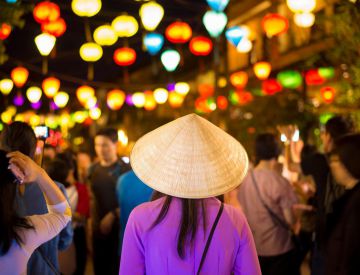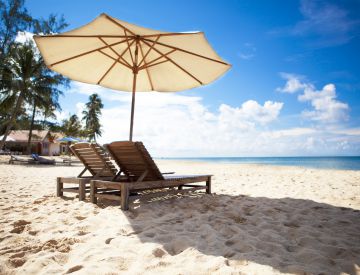Etiquette is an important social behavior for any traveler visiting a new country. Vietnam is no exception. To help you enjoy your visit to Vietnam, here are six top tips for visitors to keep in mind.
Take care when visiting temples or homes
When you enter someone’s house, take your shoes off just outside the door. Vietnamese families keep altars in their shops and homes, including some at ground level. Don’t step over these ground altars or walk around directly in front of them.
Please keep in mind when visiting a temple, you should wear modest clothes which cover shoulders and knees so as to show respects and proper etiquette. And please also remember to remove your shoes as well as hats and you can carry it with you.
Ask before taking pictures of locals
There are so many beautiful photo opportunities in Vietnam and most people will be fine with you taking their photo, but respect their privacy and always ask before you lift up your camera. Taking photos this way offers the same level of respect to your subjects as you would apply to yourself, and it can be a unique and fascinating opportunity to learn a bit about someone’s life.
Dress as the Vietnamese do
In Vietnamese cities, there’s an appreciation of modern fashion and contemporary clothes are worn by many young people. Outside the urban centres, most Vietnamese are quite traditional and modest. Visible undergarments, sheer fabrics and skimpy attire will not endear you to your Vietnamese hosts and acquaintances.
Observing the locals where you are staying will give you a good idea of what is acceptable in terms of clothing and coverage. Foreigners should note that men should not be seen shirtless in public, and swimwear is welcome only on the beach or in your resort. You can show respect for Vietnamese customs by wearing clothing that does not offend the locals.
Eat with good manners
Mealtimes in Vietnam are all about sharing. Most meals are laid out as an assortment of shared dishes, with small rice bowls and chopsticks for each diner. Pass dishes at the table with both hands or your right hand (not the left) and hold your spoon in your left hand if you’re eating soup.
It is considered good hospitality for a host to offer you food, refill your glass and put the best bits of a dish into your bowl. If you want to stop eating, simply repeat politely that you’re very full. In most social gatherings the person who made the invitation is the one who pays the bill. Otherwise, the most senior person is the one who pays.
Use your hands wisely
While the middle finger is not traditionally an offensive digit in Vietnam, the typical “fingers crossed” gesture that many people from the West make to indicate that they are hoping for the best is highly impolite. If you hope for good luck, keep your fingers out of it!
It’s also a good idea to avoid pointing at people or patting people on the back or head, particularly if they are older than you. When you pass something along, use your right hand or both of your hands, rather than just one hand or your left hand.
Don’t go window shopping in the morning
Local shops and family-owned business in Vietnam are often run with traditions and beliefs. Traditions such as offerings to the god of fortune can help a business prosper or simply help the owner run their business. Among these ideas is the belief that the first customer can make or break the sales for that day. If you’re planning to go shopping in the morning, it’s important to keep this etiquette in mind. Merely window shopping affects the mindset of the owners and their beliefs. Thus, it is often advised to not go to local stores in the early morning when people have just opened their shops.
Although shops in big shopping malls don’t hold these beliefs, some small and local shops do carry this belief, even in major cities with many tourists. Thus, if you just want to browse around, it’s best to do it in the afternoon when shops already have a few visitors earlier in the day.
.png)





.png)








